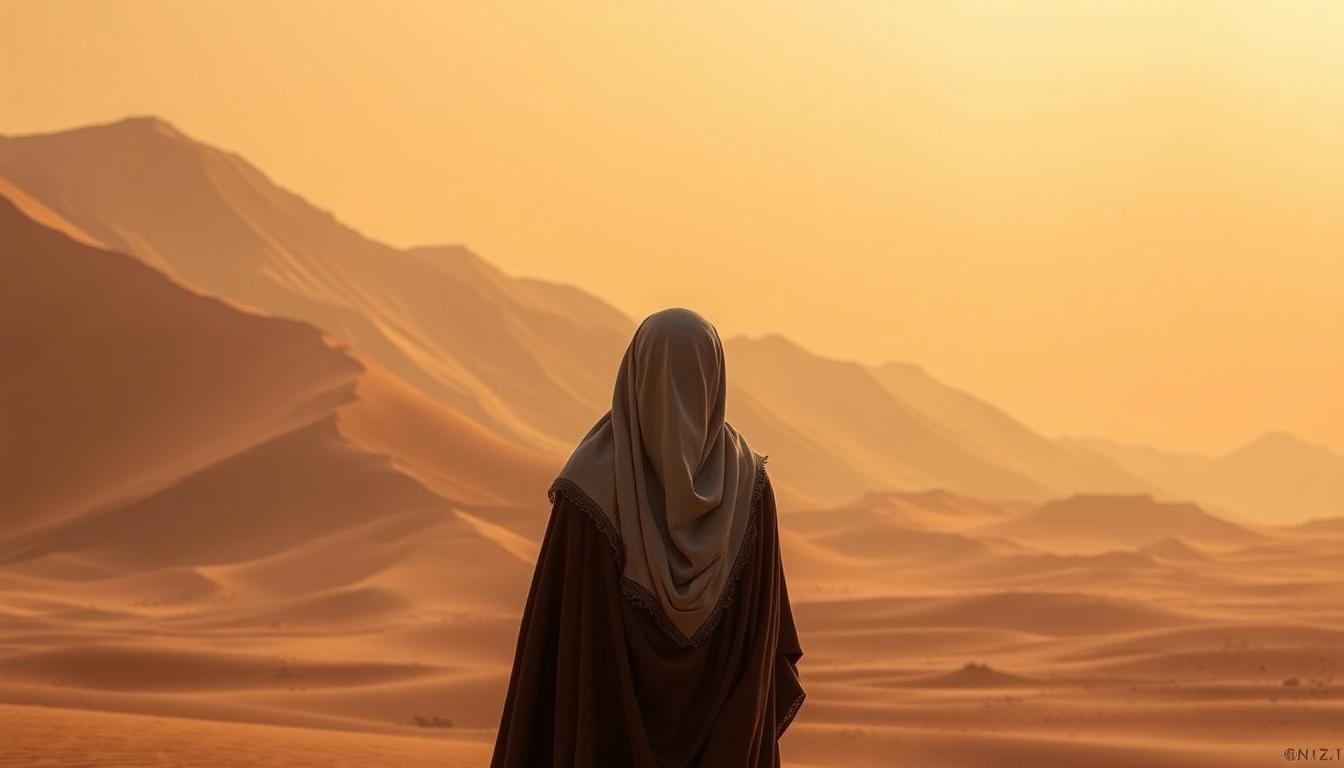
- 555 Views
- 6 Min Read
- (0) Comment
When you explore Frank Herbert’s “Dune,” you may think about how religion and culture shape our world. Herbert skillfully mixes politics, ecology, and spirituality in his story. It resonates with many of us. When wondering if Dune draws from Islam, think about the common challenges of identity, belief, and prophecy. These aspects are reflected in both the novel and in real life.
The link between Dune and Islamic themes is more than an academic question. It encourages us to see how Islam affects our views on power and morality. What similarities can you see between Herbert’s universe and the rich variety of human cultures? Diving into the connection between Dune and Islam could change how you view the story and our world.
Key Takeaways
- Frank Herbert’s “Dune” intricately blends themes of politics and spirituality.
- The novel may reflect historical and contemporary Islamic culture.
- Understanding Dune’s religious narratives can deepen your reading experience.
- Herbert’s work poses fundamental questions about human identity and belief.
- Exploring Dune’s connections to Islam invites reflection on our own lives.
The Influence of Islamic Culture in Dune
Frank Herbert’s Dune is deeply molded by Islamic culture. Written during a time of change in the Middle East, it shows in his stories. The Arabian Desert is more than a backdrop; it’s a bridge to Islamic heritage. This connection makes the story richer, giving readers many layers to explore.
Historical Context of Frank Herbert's Writing
The 1960s were a time of big changes and new interests in the Middle East. This shaped the themes in Dune, including its Islamic ones. Herbert’s work reflects a mix of power, religion, and love for the environment. These themes drew from Eastern philosophies merging spiritual life with the day-to-day. Frank Herbert religion influences are part of a broader intrigue with cultures rich in tradition and spirituality.
Arabian Desert Aesthetics
The desert is more than just a setting in Dune; it symbolizes life’s struggles and spiritual journeys in Islamic culture. Its sand dunes and oases show both beauty and danger. This captures the essence of Islamic stories and histories. Herbert uses the desert to highlight major themes, connecting strongly to Dune novel religious influences.
Language and Terminology Drawn from Arabic
Dune’s language brings its Islamic influences to life. Herbert uses Arabic terms to make the world he created feel real. This makes characters and events hit closer to home for readers interested in Islamic culture. Herbert’s choice of words underlines his deep dive into faith and culture. This approach enriches the story, making it more meaningful.
Is Dune based on Islam? Exploring Religious Themes
The Dune series combines themes of prophecy and morality found in Islamic teachings. It shares the idea of a messianic figure, much like Islamic traditions. Paul Atreides shows qualities of savior figures, questioning fate and human choice amid trials.
Prophecy and Messianic Elements in Dune
The story of Dune centers on a prophesied leader, similar to Islamic messianic beliefs. Paul Atreides’ journey mirrors Islamic tales of a redeemer who brings hope and change. The tale’s focus on prophecy shows the importance of destiny and divine will in both its plot and themes. This connection encourages readers to see how Dune and Islam influence science fiction.
Morality and Ethics Reflective of Islamic Teachings
Dune also reflects Islamic morals and ethics. Justice, compassion, and community duty are central, as in Islamic teachings. Characters face choices with big impacts, showing the value of ethical actions. This encourages thoughts on our impact on society and the relevance of these ideas today.
| Theme | Islamic Influence | Dune Representation |
|---|---|---|
| Prophecy | Belief in a prophesied leader | Paul Atreides as Muad’Dib |
| Messianic Expectations | Glory and redemption through a savior | Paul’s journey and transformation |
| Morality | Justice, compassion, and community | Character decisions with consequences |
Frank Herbert's Personal Religious Influences
Frank Herbert deeply explored different religions, shaping his books. His curiosity in spiritual beliefs is shown in the Dune series. This section looks at how the Middle East influenced the religious ideas in Dune.
The Author's Interest in Diverse Religions
Herbert researched many religions for Dune. He studied beliefs like Buddhism, Hinduism, and Christianity. This brought a mix of ideas to his stories. It creates a complex narrative that makes readers think deeply about religion.
Influence of the Middle East on Herbert’s Ideology
The Middle East’s culture and history influenced Herbert. Specific Islamic themes in Dune were inspired by his experiences there. The story mirrors Middle Eastern traditions and the mix of power and faith. This adds depth to Dune.
Comparative Analysis of Faiths in Dune
In Dune, Herbert compares different religions. This comparison shows how they are connected. It makes the story and characters more complex. Readers see how Herbert’s beliefs influenced the religious themes in his writing.
Conclusion
Dune’s connection with Islam reveals a complex blend of Islamic motifs. These elements are intricately woven into its story. The novel is not a direct reflection of Islamic texts. Yet, it pulls from the rich culture and ideas of Islam that fill its pages.
When you look at how Frank Herbert was influenced by religion, it adds depth to Dune. This mix of beliefs creates a story that pulls you in. It makes you think about your own spiritual and cultural ties. Herbert’s interest in the Middle East and its religions also adds a rich setting for his story.
Diving into Dune, you’re encouraged to think about the religious themes it presents. The book’s discussion on faith and ethics reflects big questions we face today. Thus, while not an Islamic text per se, Dune deeply explores Islamic ideas. Herbert’s work shows how these reflections still affect our modern thinking.
FAQ
Is Dune based on Islam?
“Dune” isn’t purely Islamic, but it has Islamic elements. Frank Herbert mixes in themes that remind us of Islamic traditions. This gets readers to see links with history and culture.
What are the Islamic connections found in the Dune book?
The book uses Arabic influences and sets its story in a desert. It reminds us of Islamic culture. Plus, it talks about prophecy and morality, similar to Islamic teachings.
How do Islamic themes manifest in Dune?
The book shows themes like prophecy and being a messiah. Paul Atreides’ story resembles the Islamic idea of a savior. It talks about justice and the importance of community, matching Islamic principles.
What is the historical context of Frank Herbert’s writing?
Herbert wrote “Dune” in the 1960s. That time, the politics of the Middle East affected the West. His book reflects this, showing Islamic culture in its themes and settings.
How does the Arabian Desert aesthetic play a role in Dune?
The Arabian Desert’s look and feel are big in “Dune.” It gives a sense of Islamic heritage. The story underlines surviving and adapting in tough conditions.
What personal religious influences shaped Frank Herbert’s writing?
Herbert looked into many religions before writing “Dune.” His study led to a story deep in spiritual and philosophical themes. It showcases beliefs from Islam, Buddhism, and Christianity.
Are there any specific comparative analyses of faiths in Dune?
Indeed, “Dune” examines various religions side by side. It shows how Islamic elements blend with other faiths. This weaves a complex mix of cultural and spiritual insights.
Categories
- Uncategorized (4)
- Desert Buggy Rental (1,857)
- Dune buggy (4)
- Quad Bike Rental (1)
- Desert safari (1)
- Hot air ballon (2)
- dirt bike (4)
Recent Post
Tags
Abu Dhabi short trips Art Exhibits Asian Traditions Atlantis The Palm Bali vacation planning Beach getaways UAE Best accommodation in Dubai Best eateries Best spa experiences in Dubai Best views from above Burj Khalifa viewing Couple-friendly activities Cultural landmarks Dubai Creek history Dubai Event Calendar Dubai skyline views Eid Al Adha Celebrations Emirates Palace Emirati traditional boats Exclusive boat tours Extending tourist visas in Dubai Family Entertainment French gastronomy in UAE Iconic views Kid-friendly activities Luxurious Beachfront Escape Luxury camp experience Morning dining in Dubai Mall Motor City Dubai tourism Off-road excursion Oman family travel Ramadan 2025 Romantic Getaways Sakura Blooms Singapore accommodation deals Solo travel tips Souvenir Shopping Sri Lanka waterfalls Thrilling shark adventures Top amenities Travel Destinations Travel Destinations for Easter UAE 2025 Holiday Schedule Ubud Culinary Scene VIP dune bashing experience



